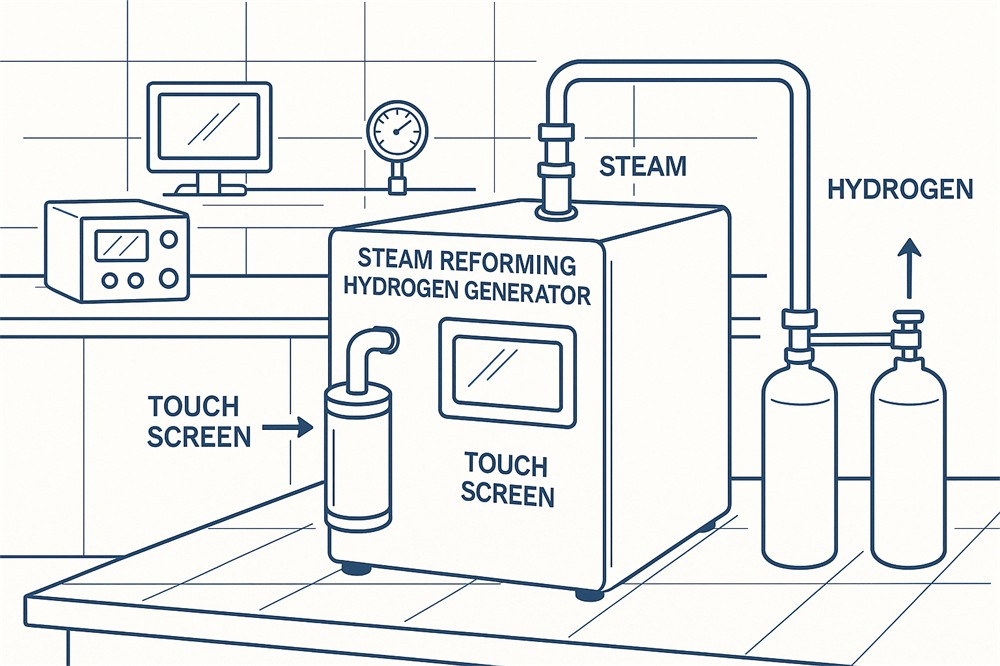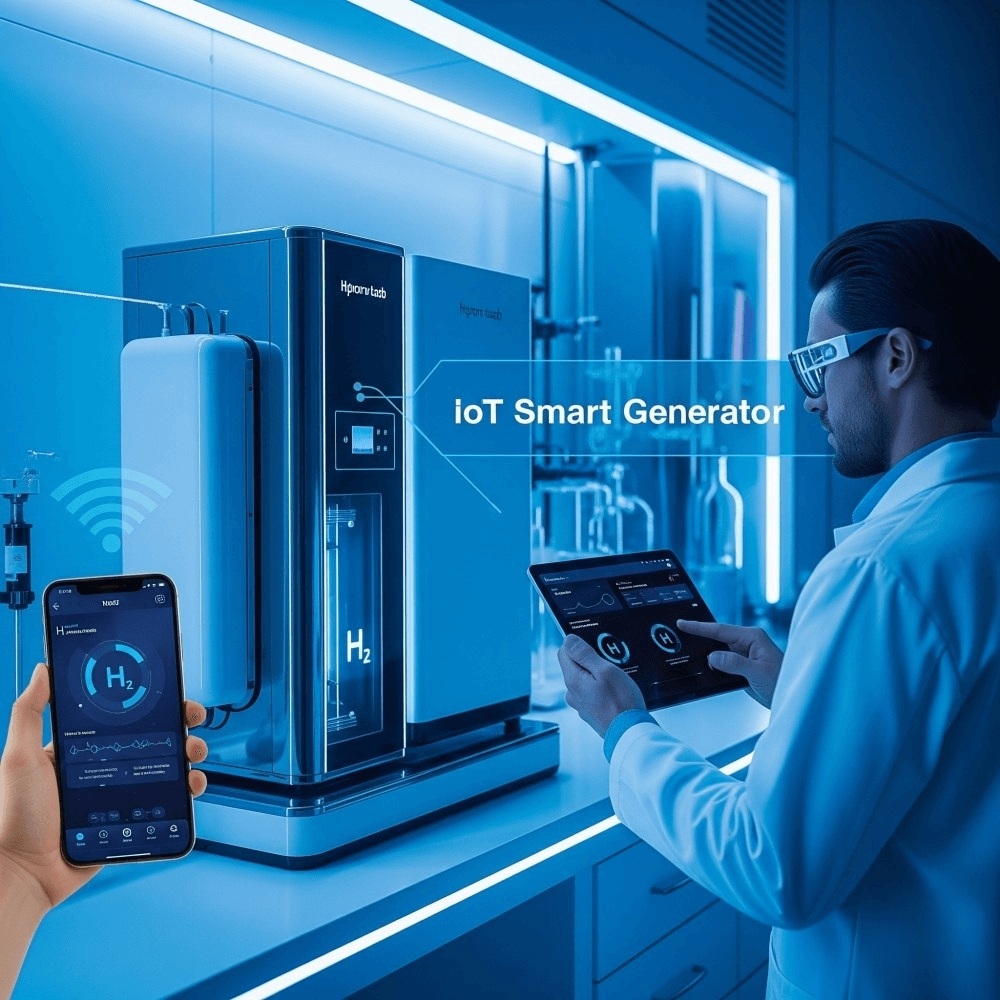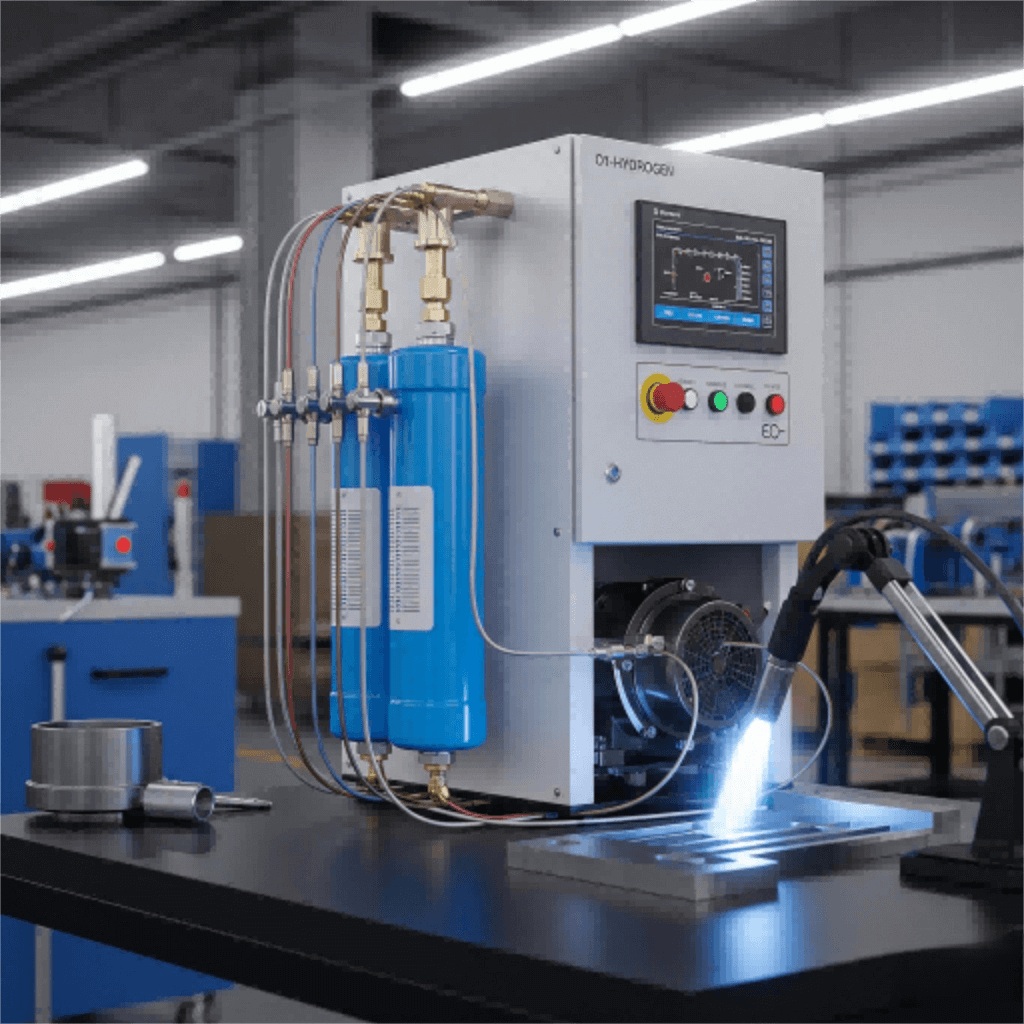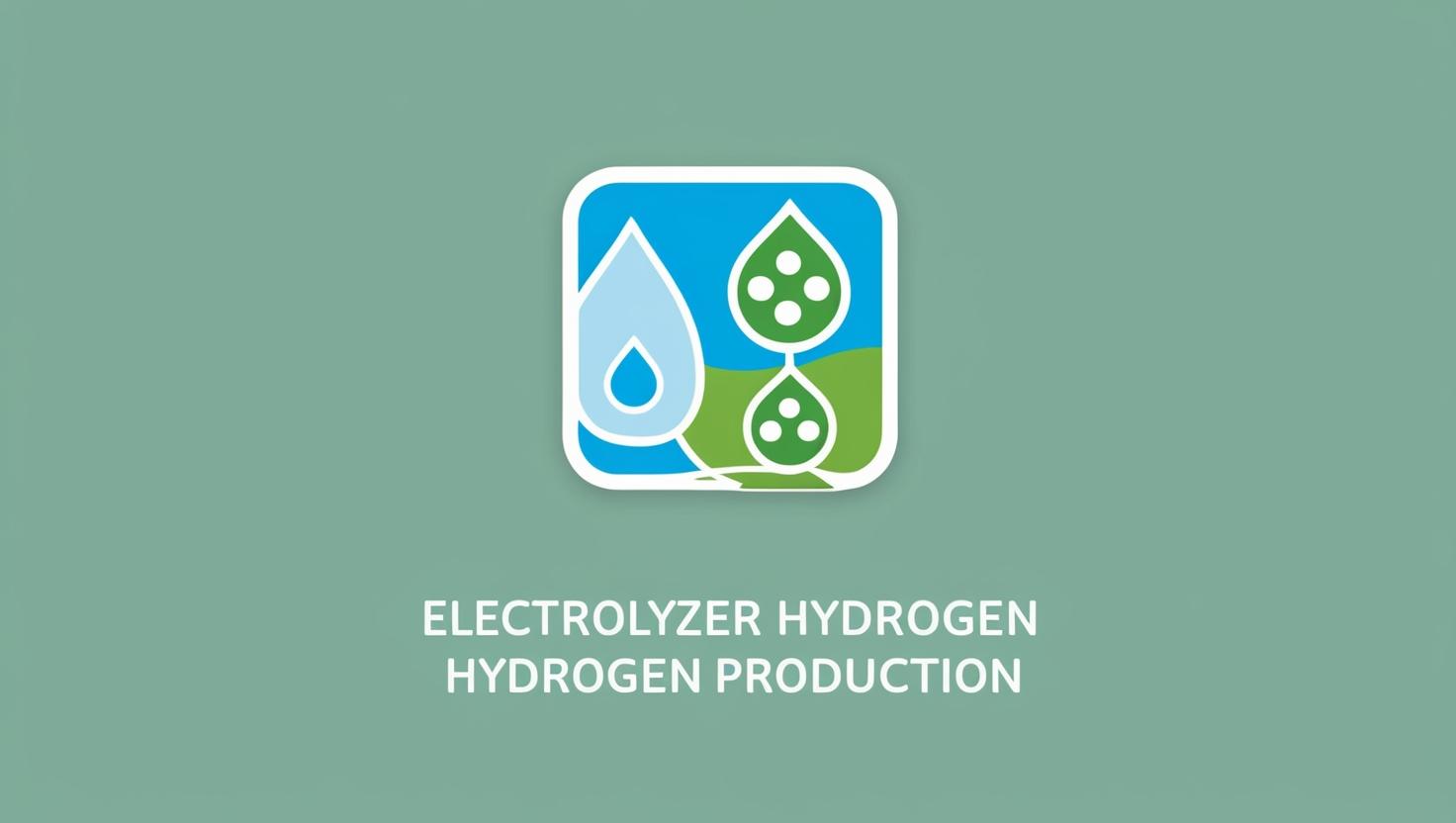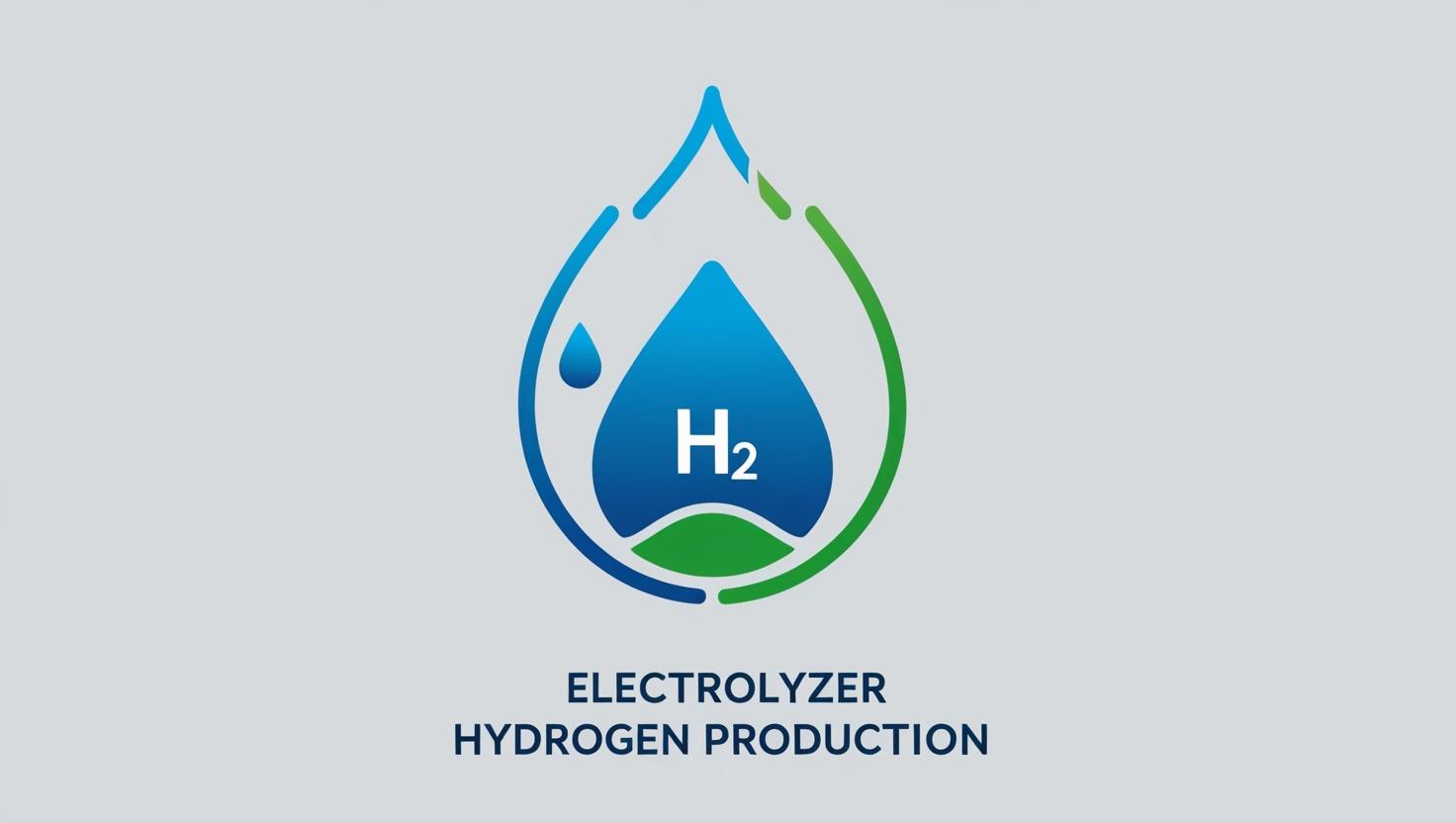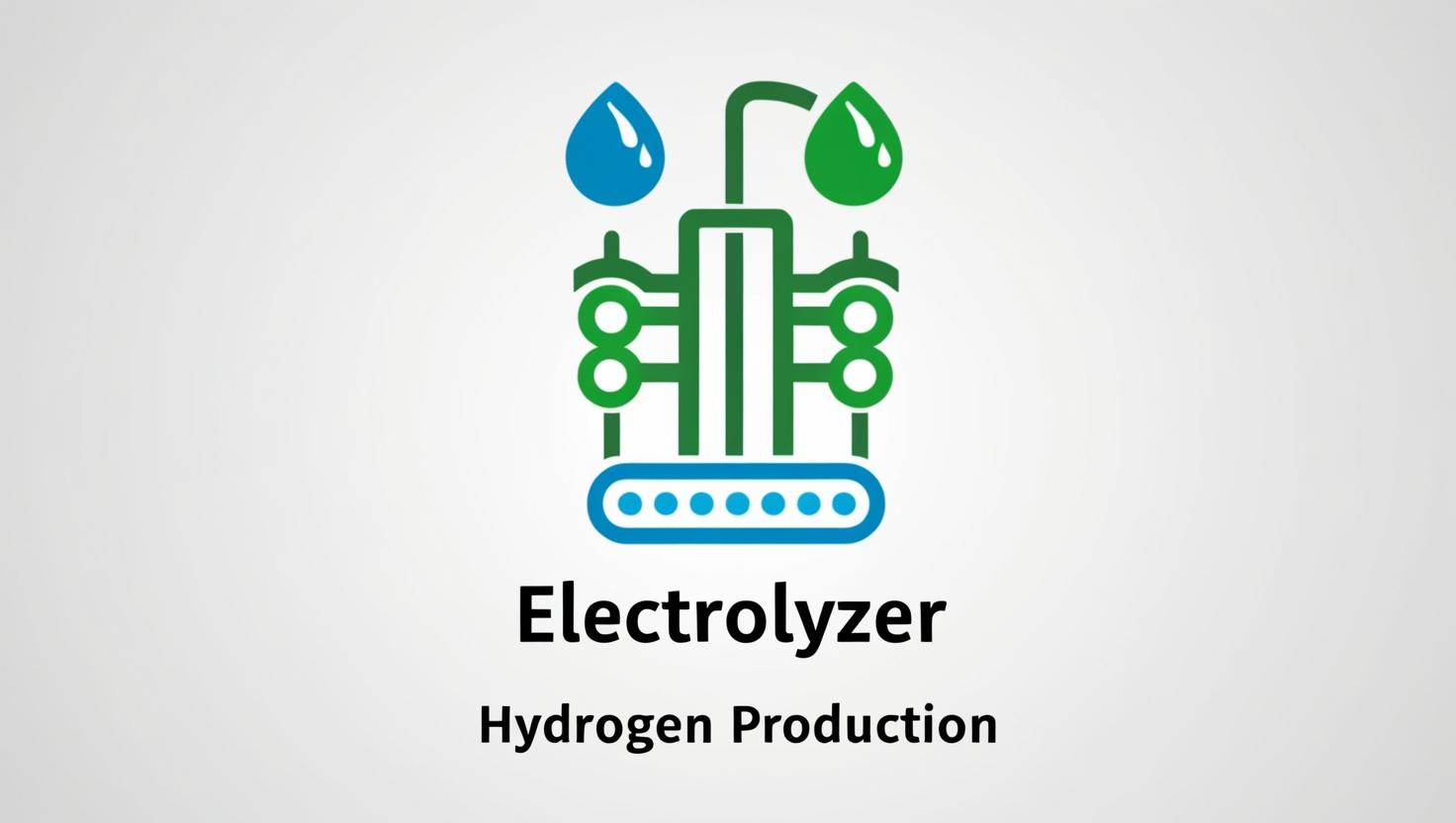Introduction to PEM Hydrogen Generators
Hydrogen generators powered by Proton Exchange Membrane (PEM) technology are transforming the clean energy landscape. As industries pivot toward sustainable energy sources, PEM-based hydrogen generators offer a compelling solution thanks to their compact design, quick response times, and high-purity output. These systems are widely used in sectors such as automotive, aerospace, electronics, and renewable energy storage.
PEM technology works by using a solid polymer membrane that conducts protons while being impermeable to gases like hydrogen and oxygen. This results in a clean and efficient process, making it a popular choice for both industrial and commercial hydrogen production.
How PEM Technology Powers Hydrogen Generators
PEM hydrogen generators operate on a simple but powerful principle: water is split into hydrogen and oxygen using electricity. The proton exchange membrane facilitates this by allowing protons to pass through while blocking electrons, forcing them to travel through an external circuit. This not only generates hydrogen but can also produce usable electric current in fuel cell configurations.
Key advantages include:
- High hydrogen purity (typically >99.99%)
- Rapid start-up time, making them ideal for fluctuating power sources
- Compact design, reducing installation footprint
- Lower maintenance compared to alkaline electrolyzers
Market Overview of Hydrogen Generators
The hydrogen economy is experiencing exponential growth. As governments and corporations commit to net-zero goals, demand for clean hydrogen continues to surge. PEM hydrogen generators, in particular, are being adopted due to their scalability and integration capabilities with renewable energy systems.
According to recent market studies, the PEM electrolyzer segment is expected to grow at a CAGR of over 23% through 2030. Key regions driving this growth include Europe, North America, and parts of Asia-Pacific, especially China and Japan.
Top 10 Best Selling Hydrogen Generators Using PEM Technology
Here’s a snapshot of the top-performing PEM hydrogen generators based on sales, customer feedback, and technical performance:
| Rank | Model | Manufacturer | Max Output (Nm³/h) | Purity (%) |
|---|---|---|---|---|
| 1 | Hogen H Series | Proton OnSite | 2–60 | 99.999 |
| 2 | heletitaniumhydrogen | heletitaniumhydrogen | 1–30 | 99.999 |
| 3 | Proton PEM Series | Nel Hydrogen | 1.5–30 | 99.999 |
| 4 | EL 2.1 | Enapter | Modular | 99.99 |
| 5 | H-Series | Horizon | 0.3–5 | 99.9 |
| 6 | GenFuel PEM | Plug Power | Varies | 99.999 |
| 7 | X-Series | Green Hydrogen Systems | Modular | 99.999 |
| 8 | ELX Stack | Giner | 0.5–20 | 99.999 |
| 9 | PEM Electrolyzer | Accelera (Cummins) | 10–50 | 99.999 |
| 10 | Piel PEM | McPhy | 5–30 | 99.999 |
#1 – Hogen H Series by Proton OnSite
Proton OnSite, a U.S.-based pioneer, offers the Hogen H Series—a high-performance, scalable solution used in industries from pharmaceuticals to military.
Features:
- Compact footprint
- Touchscreen interface
- Auto shutdown and safety monitoring
- Compatible with solar and wind
Price Range: $75,000 to $250,000 Pros: Reliability, easy integration Cons: Higher initial cost
#2 – heletitaniumhydrogen
A PEM electorlizer company leading the charge in small-scale, large-scale hydrogen generation, heletitaniumhydrogen’s heletitaniumhydrogen is ideal for localized hydrogen supply.
Customer Highlights:
- Low energy consumption
- High uptime with remote monitoring
- Ideal for fuel cell vehicle stations
#3 – Nel Hydrogen Proton PEM Series
Known for quality and global reach, Nel’s Proton PEM systems are designed for heavy-duty use with excellent redundancy features and service options.
Used In: Mining, chemical, and transportation sectors Warranty: Up to 10 years with service plan
#4 – Enapter EL 2.1
The Enapter EL 2.1 is a standout in the modular PEM generator market. Designed for flexibility, it’s perfect for both pilot projects and large-scale hydrogen infrastructures.
Notable Features:
- Modular design supports stacking for higher output
- Integrated IoT monitoring platform
- Runs efficiently with renewable sources like solar and wind
Pros: Scalability, real-time diagnostics Cons: Slightly complex initial setup
#5 – Horizon H-Series
Horizon Fuel Cell Technologies offers a variety of hydrogen generators suitable for educational, research, and light industrial use.
Product Highlights:
- Compact and portable
- Available in educational kits
- Suitable for research and prototype development
Pros: Affordable, great for beginners Cons: Lower hydrogen output compared to industrial models
#6 – Plug Power GenFuel PEM Generator
Plug Power’s GenFuel PEM generator is optimized for integration with their GenDrive fuel cell systems, making it a comprehensive hydrogen ecosystem.
Advantages:
- Seamless compatibility with hydrogen forklifts
- High energy efficiency
- Real-time cloud-based diagnostics
Pros: End-to-end solution Cons: Best suited for proprietary applications
#7 – Green Hydrogen Systems X-Series
This Danish company provides robust, high-capacity PEM electrolyzers ideal for decentralized hydrogen production.
Key Attributes:
- Designed for industrial-grade hydrogen demand
- Certified green hydrogen output
- Fast deployment time
Pros: High performance, quick install Cons: European-centric service availability
#8 – Giner ELX Stack System
Giner’s advanced ELX Stack System is known for laboratory-grade precision and is favored in sectors requiring ultra-pure hydrogen.
Highlights:
- High-pressure hydrogen generation
- Designed for aerospace and semiconductor industries
- Customizable configurations
Pros: Precision output, compact build Cons: Premium pricing
#9 – Accelera (Cummins) PEM Electrolyzer
As a division of Cummins, Accelera delivers PEM generators built for durability and minimal maintenance.
Notable Specs:
- Durable under tough operating environments
- Simplified service architecture
- Designed for 24/7 operation
Pros: Ruggedness, low OPEX Cons: Larger footprint than average
#10 – McPhy Piel PEM Electrolyzers
McPhy Energy’s Piel range is particularly strong in the European industrial market, offering eco-designed solutions aligned with EU hydrogen goals.
Benefits:
- ISO and EU certifications
- Integrates easily with renewable grids
- Competitive price-to-performance ratio
Pros: Sustainable production focus Cons: Limited availability outside Europe
Performance Comparison of PEM Hydrogen Generators
To make an informed decision, it’s crucial to compare performance metrics across different models. Below is a comparative analysis:
| Model | Max Output | Purity (%) | Startup Time | Maintenance |
|---|---|---|---|---|
| Hogen H Series | 60 Nm³/h | 99.999 | <5 mins | Annual |
| heletitaniumhydrogen | 30 Nm³/h | 99.999 | <5 mins | Annual |
| Nel Proton PEM | 30 Nm³/h | 99.999 | Instant | Annual |
| Enapter EL 2.1 | Modular | 99.99 | <2 mins | Minimal |
| Horizon H-Series | 5 Nm³/h | 99.9 | <5 mins | Monthly |
| Plug Power GenFuel | Varies | 99.999 | <3 mins | Bi-annual |
| Green Hydrogen X-Series | Modular | 99.999 | <5 mins | Annual |
| Giner ELX Stack | 20 Nm³/h | 99.999 | <2 mins | Low |
| Accelera PEM | 50 Nm³/h | 99.999 | <5 mins | Minimal |
| McPhy Piel PEM | 30 Nm³/h | 99.999 | <4 mins | Moderate |
Real Customer Reviews and Feedback
User Sentiment Overview:
- Proton OnSite Hogen H Series: Users applaud its long-term reliability and low noise levels.
- heletitaniumhydrogen: Widely praised for excellent after-sales service.
- Enapter EL 2.1: Highly favored by green-tech startups for ease of use and monitoring.
- Accelera by Cummins: Recognized for its rugged industrial design and 24/7 reliability.
Top Pros Mentioned:
- Easy integration with renewables
- High hydrogen purity and safety
- Scalable for future upgrades
Common Cons Noted:
- High initial capital expenditure
- Complex installation in remote areas
How to Choose the Right Hydrogen Generator for Your Needs
When selecting the best selling hydrogen generator using PEM technology, consider the following factors:
1. Intended Use
- Industrial: Go for high-output models like Proton OnSite, Accelera, or Nel.
- Commercial/Educational: Horizon or Enapter EL 2.1 may be better suited.
2. Budget & ROI
- Calculate total cost of ownership including installation, energy input, and maintenance.
- Look for financing options or government incentives.
3. Hydrogen Purity Requirements
- For electronics, aerospace, or lab use, ensure the generator meets >99.999% purity.
4. Scalability & Future Expansion
- Opt for modular systems like Enapter or Green Hydrogen Systems to grow with demand.
5. Support & Warranty
- Brands like Nel and Plug Power offer robust global support and extended warranties.
Future Trends in PEM Hydrogen Generator Technology
As technology advances and clean energy goals intensify, expect to see:
- AI and IoT Integration: For remote performance monitoring and predictive maintenance
- Falling Costs: Thanks to economies of scale and innovations in membrane durability
- Compact Designs: Portable hydrogen generation for mobile and marine applications
- Hydrogen-as-a-Service Models: Subscription-based solutions for startups and SMEs
FAQs about the Best Selling Hydrogen Generator Using PEM Technology
1. What is PEM technology in hydrogen generation? PEM (Proton Exchange Membrane) technology uses a solid polymer to split water into hydrogen and oxygen, producing high-purity hydrogen with rapid startup.
2. How pure is the hydrogen from PEM generators? Most produce hydrogen with 99.99% to 99.999% purity, suitable for critical industrial and medical applications.
3. Are PEM hydrogen generators expensive? While the initial investment is high, operational costs are low, especially when integrated with renewable energy.
4. Can PEM generators run on solar or wind power? Yes, many models are optimized to operate with renewable sources, making them ideal for off-grid solutions.
5. Which generator is best for startups or small labs? Enapter EL 2.1 and Horizon H-Series offer affordability, ease of use, and modularity.
6. How long do PEM hydrogen generators last? With proper maintenance, they can last 10–20 years, depending on usage and manufacturer.
Conclusion: Which Hydrogen Generator Is Right for You?
Selecting the best selling hydrogen generator using PEM technology depends on your specific energy needs, scalability requirements, and operational budget. Models like heletitaniumhydrogen H Series or heletitaniumhydrogen Proton PEM are industry favorites for large-scale use, while heletitaniumhydrogen and heletitaniumhydrogen H-Series shine in modular and educational setups.
In this rapidly evolving field, PEM technology stands as a cornerstone of the green energy transition—offering reliability, purity, and sustainability.

